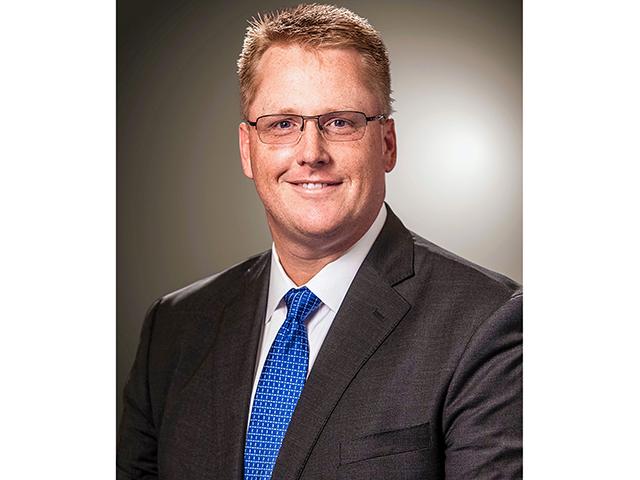Deere Company President Discusses Technology Strategy
Deere Talks Tech
During the 2023 CES (formerly Consumer Electronics Show), in Las Vegas, DTN/Progressive Farmer spent a few minutes with John Deere's Cory Reed. He is president, worldwide agriculture and turf division for production and precision ag, and is responsible for the North and South American, and Australian markets. Reed and his team deliver equipment solutions for production-scale grain, cotton and sugarcane growers.
Reed discussed new technologies and offered some insight into Deere's strategy for recouping its technology investments.
DTN/PF: Deere revealed new technologies here at the CES and laid out some of its technology goals. What's Deere's overall message?
Reed: [That this] technology is real. The [See and Spray Ultimate] sprayer you see here is running in the field today. This isn't futuristic; that machine today can sense and act in real time, it can go through the field at 12 mph, it can discern the difference between a plant and a weed, and can spray herbicide only on the weed. We're having a real impact on how food is grown, how fuel and energy and fiber is created. We're giving farmers better tools to be more productive, grow more yield, do it at a lower cost by managing how they use inputs and, ultimately, doing it in a more sustainable way.
DTN/PF: Talk for a minute about autonomy and automation, how one supports the other.
Reed: That sprayer behind (me) has a position receiver we started delivering almost 25 years ago. GPS is a building block that, with the 4G LTE Wi-Fi Bluetooth-enabled modems on the machines, [are] great core technologies that autonomy sits on top of. The 8R [autonomous tractor we had here last year] uses six stereo cameras, computer vision and machine learning to discern the difference between an open field that you can run autonomously and an object it might want to stop for.
P[L1] D[0x0] M[300x250] OOP[F] ADUNIT[] T[]
Automation will give [farmers] the chance to scale up to make every row of that planter plant as well as it can possibly plant. Autonomy ultimately will allow them to augment their labor. Our customers tell us every day one of the biggest challenges they have aside from cost is labor. As every machine gets better, the labor we put in a cab might not be as experienced, [but] we can make every one of them better. And, automation will give us the opportunity to pull that operator out [of the cab], let them do other tasks. The 8R today can run a tillage tool. In the next several years, you'll see more and more of our machines become autonomous or autonomous capable.
DTN/PF: Maybe a planter?
Reed: Well, you know, I think the whole production system ultimately will become that. And, I think it's sooner than most people think.
DTN/PF: All this technology is impressive, but what's it going to cost?
Reed: Two things: If we want people to buy autonomous technology, that machine has to cover its cost. But, understand, [autonomy] takes the operator out [of the cab] and allows that customer or his labor be productive [elsewhere]. And [two], we think about different models, [such as] putting some of that core technology into the machine and only charge the customer when they're using these advanced technologies.
DTN/PF: What is Deere's strategy for traditional and alternatively powered machinery?
Reed: We're investing across the entire spectrum. Our largest vehicles, internal combustion engines, diesel-powered engines, are going to be required for a long time. The energy required to run [Deere's] autonomous 8R tractor would take 38 Teslas to power that for a day. But, part of that solution is renewable energy, renewable diesel that comes from our farmers' very own crops. Battery electric has a place in the spectrum. In fact, we're working on battery electric ... we have a [mid-sized 145 X-Tier] excavator here that's all electric. We need to have that in our small tractor portfolio, too.
DTN/PF: You introduced ExactShot. That is technology that will apply starter fertilizer to each seed only, not down the entire seed trench.
Reed: ExactShot takes that same fertilizer and directs only what's needed at the individual seed level. That means a 60% reduction in total fertilizer needed. It's much less carbon intensive and much more sustainable.
**
-- Watch the video of the interview: https://www.dtnpf.com/…
-- Follow Dan on Twitter @DMillerPF
[PF_0323]
(c) Copyright 2023 DTN, LLC. All rights reserved.



